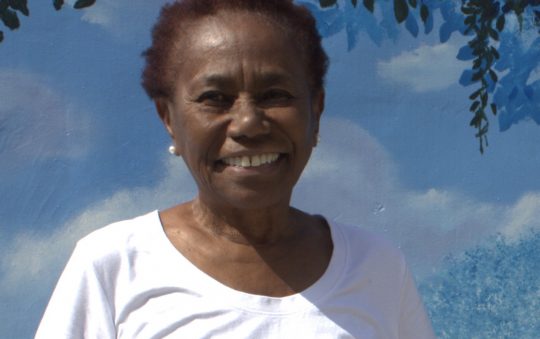
The California Student Aid Commission (CSAC) wrapped up its Cash for College program campaign on Saturday, March 2, at West Los Angeles Community College (WLACC). The campaign assisted students in applying for up to $12,000 in student aid for the 2019-2020 school year. The aid can be used at any California-based junior college, university, private or vocation school. The financial aid application deadline was Saturday, March 2; however, the deadline was extended to Monday, March 4.
The program is designed for California college students who are planning on attending college in the fall, with options of completing either a FAFSA or a California Dream Act Application (CADAA) by the deadline. In order to better answer student’s questions about the applications or financial aid, the CSAC expanded its call center hours.
“It’s a very simple process. Just go online and fill out the forms. The minimum requirements are that students maintain a 2.0 GPA, take courses totaling six units or more, and attend a California-based college,” said Brian Sapp, External Relations Manager at CSAC.
Sapp noted that students should take more advantage of the vocational programs. “People may not be aware that a lot of community colleges offer associates of arts degrees in nursing or dental hygiene. The Cal Grant works for all that stuff, or, if you want to be a welder of a firefighter, all that aid is for them.”
Dwight Bonds, executive director of the California Association of African American Superintendents and Administrators (CAAASA), organized the event. The organization consists of educational leaders committed to identifying and addressing the critical issues in education relative to the status and performance of African-Americans.
“We heard the alarming news about the low rate of African American students having filed the application. There was a very low participation percentage in high schools such as Dorsey and Crenshaw,” said Bonds. According to Bonds, CAAASA reached out to the Student Aid Commission last year and the two formed a partnership that involved providing administrative and outreach support. “It’s also in our mission. Our mission is to take a look at the success of African American students.”

Bonds’ grandson, Elijah Bonds, a Los Angeles Valley College student, took advantage of the program. He spoke about the ease of the application process. “It’s free money … I called and texted my friends, told them to make sure they handled this. It’s pretty important to take advantage of free opportunities,” said Elijah, who is completing a two-year community college transfer requirement and plans to attend California State Northridge University in the fall.
“One of the goals of the Commission is to have every person who is potentially eligible for California student financial aid, submit a FAFSA/CADAA. Financial aid is such a fundamental step in helping students realize their dreams of a higher education,” said Dr. Lande Ajose, chair of the CSAC. “Everyone deserves a better quality of life and the Commission is driven to do our part by helping to make that dream a reality.”
“A total of 1,070 Cash for College workshops were offered across California during the 2019-20 financial aid application season. 340 [of them] were held at high schools with five percent or more African American students. We thank Dr. McKenna and Mr. Bonds for working with the community to arrange the Cash for College event at West Los Angeles Community College,” said Patti Colston, communications manager at CSAC.
According to Colston, students may continue to submit a 2019-2020 (to CADAA) until June 30, 2019. Although the Cal Grant deadline of March 2 has passed, students may still be eligible for federal aid, campus-based aid or private scholarships.
For more information on the program and other resources, visit csac.ca.gov or dream.csac.ca.gov/.







